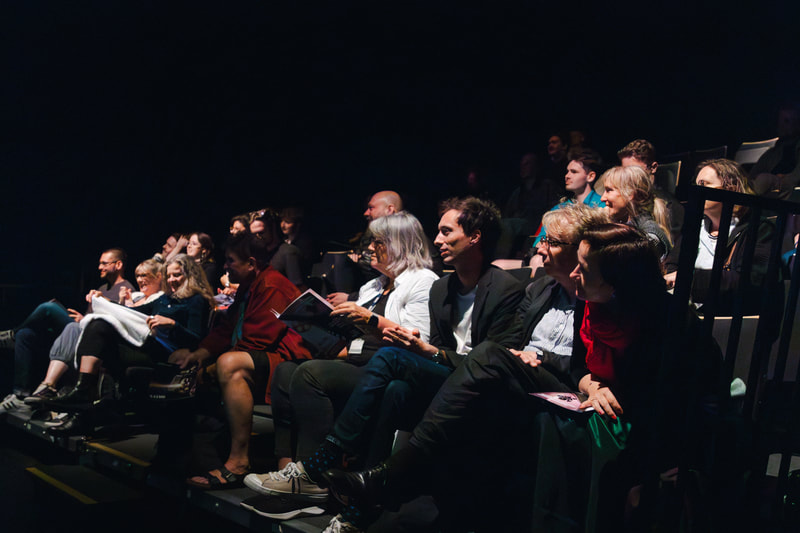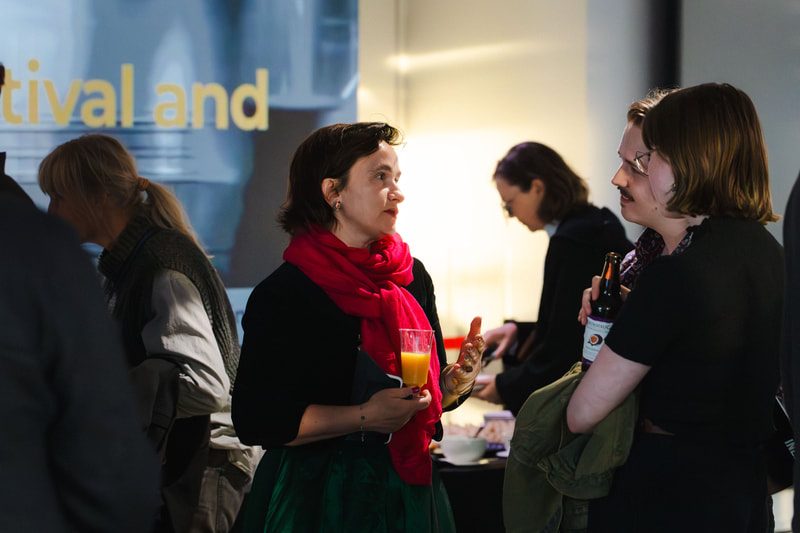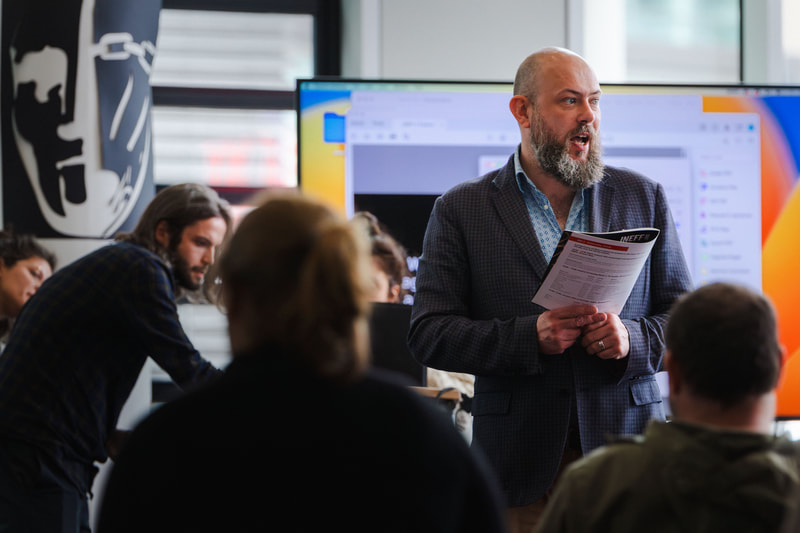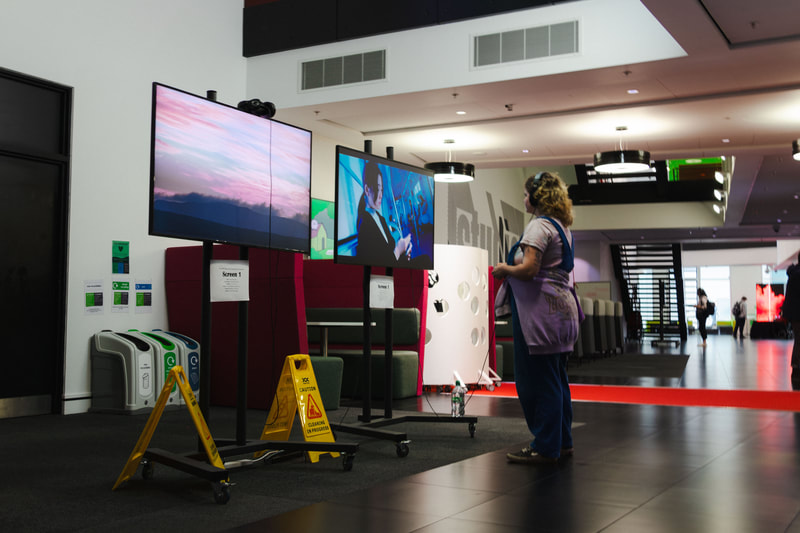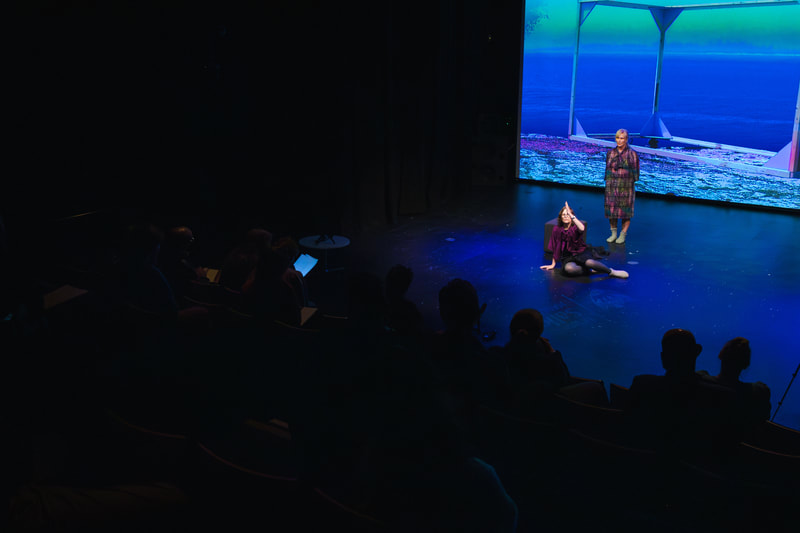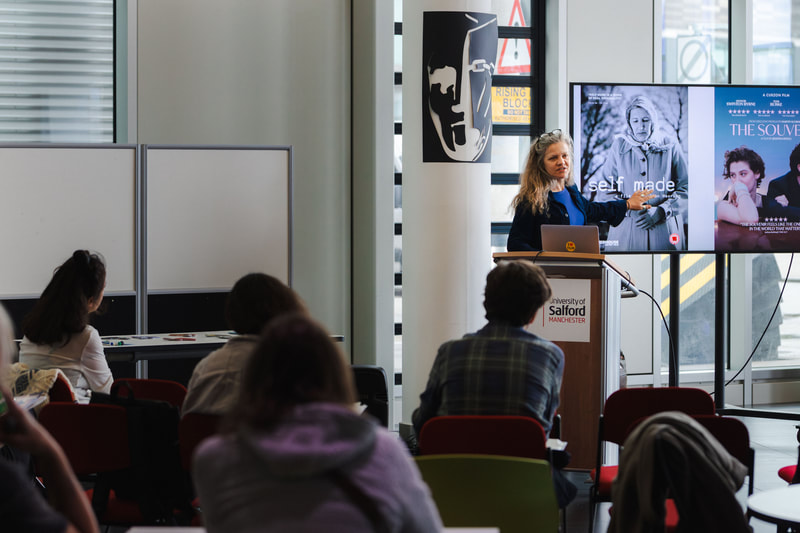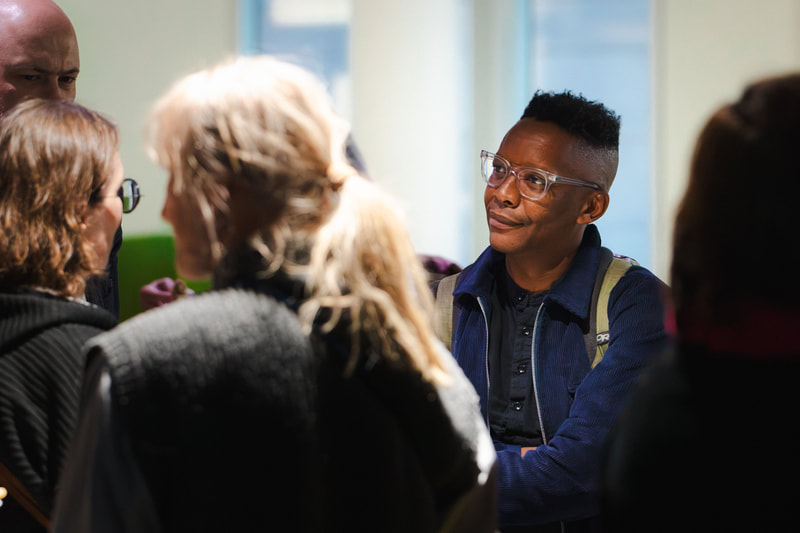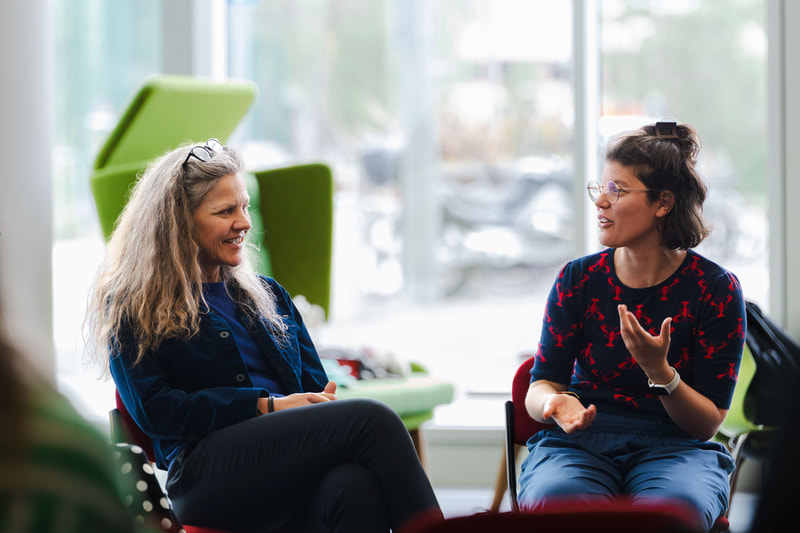The 2024 INEFF Festival and Conference brings together the best of independent experimental fiction film production from all around the world, together with practitioners and researchers delivering a fantastic programme of talks, screenings, workshops, and more.
Check out the programme and register here. See the festival trailer below.
Check out the programme and register here. See the festival trailer below.
|
The event takes place on the ground floor of the University of Salford MediaCity campus.
University of Salford MediaCityUK Manchester M50 2HE |
The INEFF Festival and Conference is a unique and innovative event that showcases the best and most exciting experimental fiction films from around the world. The event brings together filmmakers, artists, scholars, and industry professionals, and it is dedicated to exploring the creative possibilities and boundaries of experimental fiction filmmaking, and promoting the development of new modes of storytelling and audio-visual communication.
The event programming features a diverse selection of films that embody the experimental fiction filmmaking ethos, ranging from short films to feature-length works, as well as expanded cinema and VR. The films are chosen for their deviation from traditional narrative and stylistic norms and their emphasis on exploration and experimentation.
In addition to film screenings, the event features panels, workshops, and Q&A sessions with filmmakers and experts in the field, engendering a deep conversation between theory and practice, inspiring innovation and development of the film form. These sessions are designed to engage all attendees in critical discussions about the creative possibilities and boundaries of experimental fiction filmmaking. The festival also provides networking opportunities for attendees to connect with industry professionals, artists, and fellow filmmakers. This facilitates the development of new collaborations, partnerships, and projects within the experimental fiction filmmaking community.
The INEFF Festival and Conference is a platform for both established and emerging filmmakers, offering a space to showcase their work and receive recognition for their creative and artistic vision. By bringing together diverse perspectives and experiences, the event fosters an environment of collaboration, experimentation, and innovation in the art of filmmaking.
The first inaugural INEFF event took place at the MediaCity UK on 11 and 12 July 2023, and was organised by the International Network of Experimental Fiction Filmmaking and the University of Salford. The screening of selected films was on the evening on the 11th July, followed by a drinks reception. On the following day, there was a thorough panel discussion of specific films, as well as workshops, talks and wider film exhibitions. All selected films were available to attendees to (re)view on TV screens throughout the second day.
All photo and video by Maciej Sonski
What do we mean by Experimental Fiction Filmmaking?
Experimental Fiction Filmmaking is an open approach to film production that is informed by creative traditions in cinema, specifically experimental film, art cinema and expanded cinema, but also by specific philosophical concerns and practitioner insights and sensibilities. In parallel to the notion of experimental fiction in literature, it can be defined by a deviation from established narrative and stylistic norms linked to seamless and coherent representation, dramatic structure or commercial principles of spectacle and entertainment.
There is no fixed definition of Experimental Fiction Filmmaking, and the INEFF Festival and Symposium will help to define but also expand the field.
There is no fixed definition of Experimental Fiction Filmmaking, and the INEFF Festival and Symposium will help to define but also expand the field.
|
What are the creative possibilities and boundaries of experimental fiction filmmaking?
Which modes of collaboration can inform novel and meaningful experimental fiction film outputs?
How might new technology shape new narrative fiction forms?
How might we define Experimental Fiction Filmmaking?
|
|
